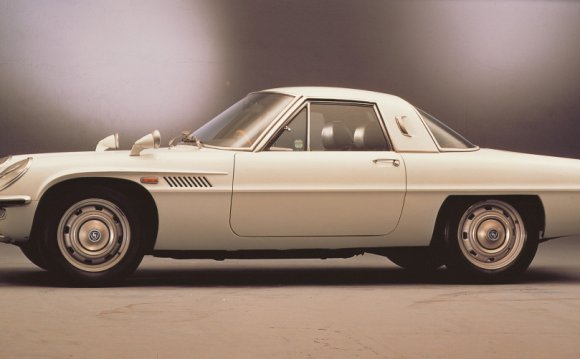
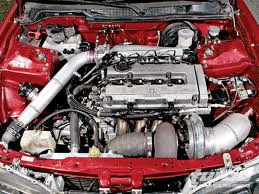 You probably ride in your car every day to school or soccer practice, but have you ever wondered what makes your car go? The powerful internal combustion engine underneath the hood is at the heart of your carâs performance. The secret to the internal combustion engine is simply burning gasoline. Gasoline has molecules which are made of atoms of hydrogen and carbon. When the gasoline is ignited, it mixes with air. It expands and one molecule of gasoline becomes many molecules.
You probably ride in your car every day to school or soccer practice, but have you ever wondered what makes your car go? The powerful internal combustion engine underneath the hood is at the heart of your carâs performance. The secret to the internal combustion engine is simply burning gasoline. Gasoline has molecules which are made of atoms of hydrogen and carbon. When the gasoline is ignited, it mixes with air. It expands and one molecule of gasoline becomes many molecules.
This expansion makes tremendous heat and pressure. The pressure causes pistons that are attached to a crankshaft to move up and down with great force. This back and forth movement makes the wheels of the car go, and voila, youâre moving!
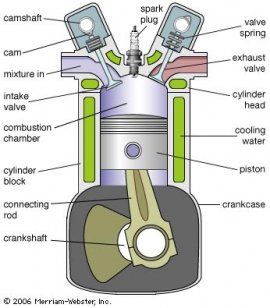
- Cars have more than just one piston and valve. The more pistons, the more power.
- A cannon is a very simple type of combustion engine. The cannonball is packed into the cannon, along with gun powder. When the gun powder is lit, it creates hot gas and pressure. The pressure causes the cannonball to blow out of the cannon at 200 miles per hour.
- As air moves into the engine, it goes through an air filter that gets rid of dirt and dust.
- A spark plug lights the gas on fire so it moves the pistons.
- There is no oxygen or air in space so rockets have an air tank next to the fuel tank.
Internal Combustion Engine Vocabulary
- Internal combustion: burns inside the engine
- Ignite: light on fire
- Molecule: The smallest particle of something; contains at least two atoms
- Atom: the smallest part of a chemical element
- Pressure: force that builds up
- Expansion: becoming larger
- Cannon: a large gun previously used in wars
Learn More All About Internal Combustion Engines
Check out this awesome video about internal combustion engines:
A 3D video about the work cycle of an internal combustion engine.
Internal Combustion Engine Q&A
Question: What happens if the engine gets too hot?
Answer: Engines get very hot because of the expanding fuel and the pumping pistons. If they get too hot, theyâll overheat and burn up. A radiator runs coolant to keep the engine cool. An exhaust system releases the spent fuel.
RELATED VIDEO
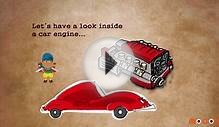

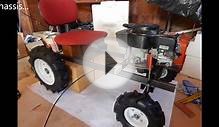

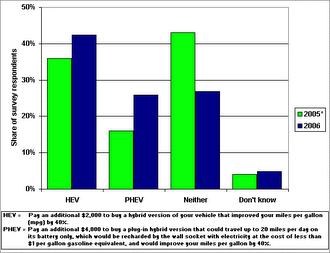 A plug-in hybrid electric vehicle (PHEV), plug-in hybrid vehicle (PHV), or plug-in hybrid is a hybrid vehicle which utilizes rechargeable batteries, or another energy storage device, that can be restored to full charge by connecting a plug to an external electric...
A plug-in hybrid electric vehicle (PHEV), plug-in hybrid vehicle (PHV), or plug-in hybrid is a hybrid vehicle which utilizes rechargeable batteries, or another energy storage device, that can be restored to full charge by connecting a plug to an external electric...








